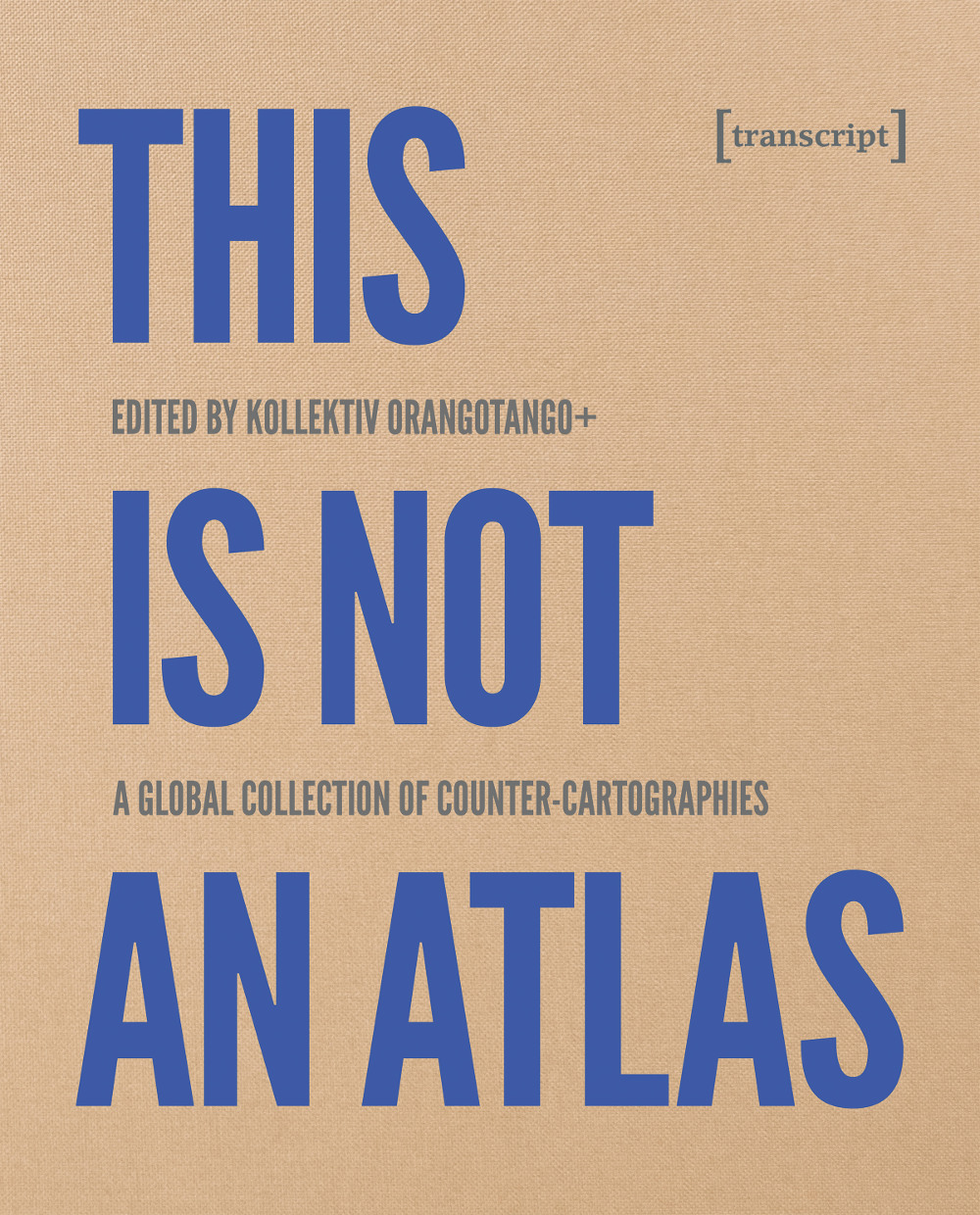kollektiv orangotango+ (ed.): This Is Not an Atlas: A Global Collection of Counter-Cartographies (2018)
Filed under book | Tags: · activism, cartography, geography, indigenous peoples, mapping, participation, politics, social cartography

“This Is Not an Atlas gathers more than 40 counter-cartographies from all over the world. This collection shows how maps are created and transformed as a part of political struggle, for critical research or in art and education: from indigenous territories in the Amazon to the anti-eviction movement in San Francisco; from defending commons in Mexico to mapping refugee camps with balloons in Lebanon; from slums in Nairobi to squats in Berlin; from supporting communities in the Philippines to reporting sexual harassment in Cairo. This Is Not an Atlas seeks to inspire, to document the underrepresented, and to be a useful companion when becoming a counter-cartographer yourself.”
Publisher transcript, Bielefeld, Sep 2018
Social and Cultural Geography series, 26
Creative Commons BY License
ISBN 9783837645194, 3837645193
346 pages
Review: Alison D. Ollivierre (Cartographic Perspectives, 2020).
Project website
Publisher
OAPEN
WorldCat
PDF, PDF (92 MB, updated on 2023-7-31)
Comment (0)Caren Kaplan: Aerial Aftermaths: Wartime from Above (2018)
Filed under book | Tags: · aesthetics, air, cartography, colonialism, geography, history of photography, infrastructure, knowledge, landscape, mapping, military, nature, panorama, photography, power, space, technology, war

“From the first vistas provided by flight in balloons in the eighteenth century to the most recent sensing operations performed by military drones, the history of aerial imagery has marked the transformation of how people perceived their world, better understood their past, and imagined their future. In Aerial Aftermaths Caren Kaplan traces this cultural history, showing how aerial views operate as a form of world-making tied to the times and places of war. Kaplan’s investigation of the aerial arts of war—painting, photography, and digital imaging—range from England’s surveys of Scotland following the defeat of the 1746 Jacobite rebellion and early twentieth-century photographic mapping of Iraq to images taken in the immediate aftermath of 9/11. Throughout, Kaplan foregrounds aerial imagery’s importance to modern visual culture and its ability to enforce colonial power, demonstrating both the destructive force and the potential for political connection that come with viewing from above.”
Publisher Duke University Press, Durham, 2018
Next Wave: New Directions in Women’s Studies series
ISBN 9780822370086, 0822370085
xiv+298 pages
via André
Bernhard Siegert: Cultural Techniques: Grids, Filters, Doors, and Other Articulations of the Real (2015)
Filed under book | Tags: · art, cartography, cultural techniques, cybernetics, information, information theory, machine, media, media theory, ontology, painting, perspective, representation, technology

“In a crucial shift within posthumanistic media studies, Bernhard Siegert dissolves the concept of media into a network of operations that reproduce, displace, process, and reflect the distinctions fundamental for a given culture. Cultural Techniques aims to forget our traditional understanding of media so as to redefine the concept through something more fundamental than the empiricist study of a medium’s individual or collective uses or of its cultural semantics or aesthetics. Rather, Siegert seeks to relocate media and culture on a level where the distinctions between object and performance, matter and form, human and nonhuman, sign and channel, the symbolic and the real are still in the process of becoming. The result is to turn ontology into a domain of all that is meant in German by the word Kultur.
Cultural techniques comprise not only self-referential symbolic practices like reading, writing, counting, or image-making. The analysis of artifacts as cultural techniques emphasizes their ontological status as “in-betweens,” shifting from first-order to second-order techniques, from the technical to the artistic, from object to sign, from the natural to the cultural, from the operational to the representational.
Cultural Techniques ranges from seafaring, drafting, and eating to the production of the sign-signal distinction in old and new media, to the reproduction of anthropological difference, to the study of trompe-l’oeils, grids, registers, and doors. Throughout, Siegert addresses fundamental questions of how ontological distinctions can be replaced by chains of operations that process those alleged ontological distinctions within the ontic.
Grounding posthumanist theory both historically and technically, this book opens up a crucial dialogue between new German media theory and American postcybernetic discourses.”
Translated by Geoffrey Winthrop-Young
Publisher Fordham University Press, New York, 2015
Meaning Systems series
ISBN 0823263762, 9780823263769
xiv+265 pages
Reviews: Geoghegan (Paragraph, 2014), Young (New Media & Society, 2015).
Commentary: Martin (Grey Room, 2016).
PDF (8 MB, updated on 2020-1-1)
Comments (4)
